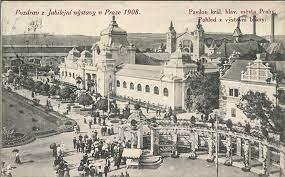
A Century of Chess: Prague 1908
The second major tournament of the Austro-Hungarian jubilee – a celebration of the 60th anniversary of Emperor Franz Joseph’s accession to the throne. Duras was the hometown boy and he delivered, tying with Schlechter for first place. The crowd had the satisfaction of seeing the entire winner’s circle occupied by citizens of the Austro-Hungarian Empire, with Vidmar finishing a half-point behind Duras and Schlechter.
Prague is a city of hauntings and there were two strange episodes in this tournament. In the penultimate round, the local master Kvicala sat down for his game against Duras, played 1.e4 and then was given the news that both his parents had died. Kvicala immediately resigned the game and left the playing hall – which, incidentally, turned out to be a crucial point for Duras in taking first place. A different (more amusing) incident concerned the game Marshall-Schlechter. The game was adjourned around move 30.
Marshall, in his hotel room, struggled for several hours to find a continuation and then fell asleep. In his dream, the ghost of William Steinitz appeared and showed him the pawn sacrifice 33….c5. On waking, Marshall examined the move, found that it had more potential than he’d realized, played it in the game and won. For the rest of his life, Marshall credited Steinitz for the suggestion, and somehow I believe him. Prague was Steinitz’s city. Steinitz, remember, had spent the last years of his life – in his lunatic asylum – trying to challenge God to a chess match. Given his character, you would expect Steinitz to spend the afterlife kibitzing at a chess tournament. He likely didn’t have any particular attachment to Marshall, but it would have been hard for him to pass up the opportunity to divulge a winning move.

Schlechter led most of the way, his second tournament victory in a year. Duras had his usual topsy-turvy performance, losing more games than any of the leaders but also scoring the most wins. The defining moment for him came in his game with Salwe below.
The tournament was a disappointment for Rubinstein, who played well but for the second time that year finished outside the winners’ circle and lost some of his aura of invincibility. The Field claimed - probably without basis - that he had "lost confidence in himself and played with extreme caution and dry soundness." Lasker was not so easily fooled by a couple of sub-par results, writing that "one is impressed by the profundity of Rubinstein's style" but admitted that Duras had "[lately] eclipsed him."
The older generation continued to fall behind the Young Turks. Janowski was in tenth place, Marshall in seventh, notwithstanding Steinitz’s assistance, and Mieses in thirteenth.
For the first time in memory, Maróczy disappointed, managing only sixth place - Lasker observed that he "appeared less sure of himself," which was perceptive of him: the tournament would be Maróczy's last before a three-year hiatus. Leonhardt, Dus Chotimirski, and Salwe put in some of the best performances of their careers.
